
When 2024 dawned in Chattanooga, Tennessee, job hunting was the furthest thing from Jacqueline “Jacki” Harp’s mind. As regional director of REI’s southeastern United States operations, Harp loved her job and the feeling of home that came with nearly 18 years of professional history at the company. But then Smokies Life CEO Laurel Rematore announced her intent to retire, and the equation changed.
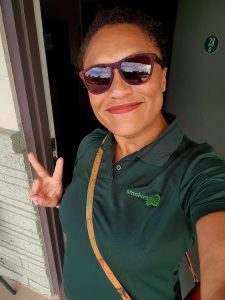
“I don’t think I could have left for just anything,” said Harp, who is now settling into her role as CEO following Rematore’s November 15 retirement, “but this felt like exactly the right thing.”
Harp has lived in many different places over the course of her life, but the Great Smoky Mountains region has always been home, the backdrop to a love of the outdoors that has been developing since her childhood in Chattanooga. Through outings with her dad, team sports with her extended family, and days spent watching her grandmother, a passionate gardener, cultivate the perfect environment to “create what she thought of as beauty in the world,” Harp developed an appreciation for time spent outside.
But it wasn’t until she began her first full-time job, coordinating volunteer work and outdoor experiences for college students at her alma mater, Queens University of Charlotte, that her love for the outdoors grew in earnest. When she joined REI, it blossomed.
Her career there began as a part-time job at the outdoor outfitter’s Charlotte store, a position she held in addition to her full-time job as marketing manager for the local YMCA. But soon afterward she was offered a role at REI’s administrative headquarters near Seattle, later returning to the Charlotte store for a year before moving north to open a new location in Richmond, Virginia. Her next position took her to Albuquerque, New Mexico, for nearly five years, followed by moves to Austin and San Antonio, Texas, before her return to Chattanooga in 2018, when REI opened a new store in that city. By the time Harp left the company in 2024, she was serving as director of the entire southeastern region.
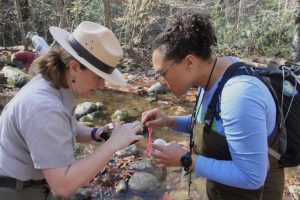
Harp is an observer. Today, her favorite form of outdoor recreation is backpacking, a medium that allows her to disconnect from the modern world and deeply engage with the surrounding landscape. But she’s also always loved learning about people and how they build communities together. When she was growing up, her fascination with advocacy, debate, and lawmaking made led her to believe she’d end up pursuing a career in law or policy. Her work at REI allowed her to explore the intersection of those interests. During her career there, she grew up professionally and gained insight into who she is and what she needs from a career.
“I learned that I really enjoyed moving around,” she said. “I really get a lot of energy from seeing different parts of the country, from interacting with people that have different lived experiences than I do, seeing different ecosystems and how they work together. I love that.”
After returning to Chattanooga, Harp, now married with two kids, set to work becoming reacquainted with the natural and human communities of the place where she’d grown up. Enrolling in classes at the Great Smoky Mountains Institute at Tremont, she earned a Southern Appalachian Naturalist Certification in 2023. The experience opened her eyes to the vast diversity of life this region offers.
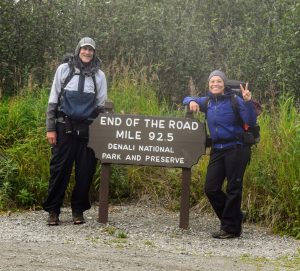
“You get this really interesting taste of America in the ecosystem that we live in here in the Smokies, but also in the diversity of people that come through this area,” she said. Living in the middle of that diversity gives her much of the same energy she derived from frequent moves earlier in her career. “I really love that there’s a microcosm of that here.”
But as the years went by, Harp began to desire a type of connection to these communities that her career at REI was no longer affording her. As director of the entire southeastern region, her attention was necessarily dispersed over a large geography, and it became hard to see how her actions and decisions were helping individual communities.
“I became hungry for work that had a more obvious positive impact on the things that I really care about, and this park has really been the most significant backdrop for my entire life arc of caring about and engaging with the natural world,” she said.
The CEO position at Smokies Life felt like the perfect solution. She already knew she loved running stores and helping teams serve customers; doing so in support of the park that she cares about “more than any other place” would be “a dream,” she said.
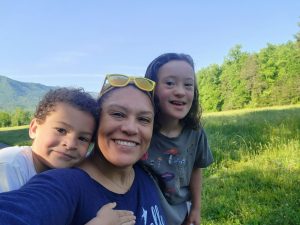
Now, that dream has come true. As Harp slips into her new role, she’s trying hard to heed the advice a mentor once offered her years ago: that fresh perspective is a limited-time gift. Harp likes to stay busy, but in each new job she makes it a point to take time to “observe the full landscape”—whether professional or physical—before jumping into action.
“That has taught me a lot of lessons in both my work and how I engage in the outdoors,” she said. “Because I want to start the hike. I want to start the work. And it’s taken some discipline and some mentorship from others to say, ‘You need to pause for a minute and take it in.’”
At Smokies Life, there’s a lot to take in. The organization has more than 100 employees, operates eight visitor center stores and contact stations, publishes a variety of books, magazines, and other publications each year, and has provided more than $50 million in direct funding to Great Smoky Mountains National Park since its founding in 1953. While Harp is extremely familiar with some aspects of the work at Smokies Life, such as its retail operations, other realms—especially publications and federal agency partnership—are new to her. But she finds that challenge invigorating rather than intimidating.
“I’m thrilled to be in this position where I feel like I have an opportunity to equal parts contribute and lead, and also learn a lot,” she said.
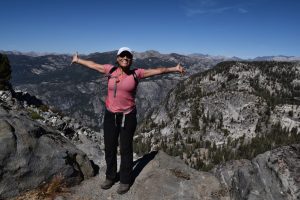
Most of her previous positions have been either all leading or all learning, but at Smokies Life, Harp feels like she’s found the sweet spot—especially considering the legacy of “very strong leadership” she inherits from Rematore, which gives her some margin to consider her approach. On her mind right now are ways to make the “impressive” amount of content Smokies Life produces accessible in a greater variety of formats, and creating an online store experience that is as positive and welcoming as an in-person bookstore visit. Harp is also excited about upcoming renovations to the park’s Cades Cove and Sugarlands visitor centers, and the role Smokies Life might play in helping the National Park Service envision new designs for those facilities.
“To me, that is the core of what we’re here to support—to make sure that visitors coming through understand why it is so important to preserve this place,” she said, “and that they walk away with something educational or inspirational, deepening their interpretative relationship with the park.”
Whatever the future holds, she’s excited to help Smokies Life meet it.
“There was a season that I couldn’t imagine leaving REI,” she said. “And now that I’m here, I feel so lucky to be at this moment.”
Subscribe to get the latest posts sent to your email.
The Great Smokies Welcome Center is located on U.S. 321 in Townsend, TN, 2 miles from the west entrance to Great Smoky Mountains National Park. Visitors can get information about things to see and do in and around the national park and shop from a wide selection of books, gifts, and other Smokies merchandise. Daily, weekly, and annual parking tags for the national park are also available.